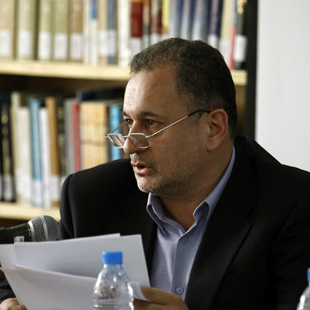Energy and Foreign Policy

In the latest outlook released, it is indicated that the world will not stop using oil and gas in the near future. It is estimated that the Persian Gulf’s role in producing oil and gas will increase in the next decade. Even if Iran was not a producer of oil and gas, it would still have geopolitical value due its position.
Western countries have tried to reduce their dependency on oil since the 1973 oil shock; they’ve tried to minimize their consumption of oil and gas and rely on nuclear energy and coal instead. After the 1973 oil shock, oil became a strategic commodity and it was no longer treated like a market commodity, which demonstrates the political importance of oil.
Both our reserves and our energy position are in a situation that no country will confront us without paying attention to oil, gas, and our geopolitical position. Therefore, Iran’s foreign policy is inevitably tied to oil. Our strongest point in dealing with powers beyond the region has been oil. These reserves create both opportunities and threats; the threats are observable in the tendency of world powers to take over these reserves.
In the related literature, diplomacy is considered the tool for progressing with the international goals of a nation, while some others consider it equivalent to foreign policy. Therefore, I have always had a problem using the term “energy diplomacy”. If diplomacy is a tool, then I do not understand the meaning of energy diplomacy, and if it means foreign policy, then it should be said “energy and foreign policy”. In other words, we should be able to regulate the cooperation between energy apparatuses and foreign policy so that we can achieve our main goals.
The US puts a great deal of effort into gaining the security of the region and US officials have always said that energy policy is on top of their policy agenda. During Putin’s second term we witnessed that Russia focused on exporting gas to Europe more than ever. Russia has shown that it desires a monopoly in the European market and wants to use this monopoly as a political tool. It is said that Russia has replaced its ideological approach used in the Soviet era with this new approach.
Gas will gain greater importance in the next decades. The Russians have the upper hand in gas reserves and they are also the conjunction point between the West and East in gas transactions; however, the Americans want to deprive them of their second privilege and control the market themselves. The US has its own concerns regarding China as well, and therefore it is trying to make the issue of pollutants and environmental issues primary in regards to China in order to increase China’s dependency on coal and to maintain its own control.
Our country has no other choice than to interact in regards to the energy sector. But have we enjoyed successful oil diplomacy up until now? My answer is no. We need more interaction between the diplomatic and energy apparatuses in our joint fields in order to have more successful competition with our neighbors. We have 28 joint fields with other countries. In South Pars-- our biggest joint field-- our rival extracts 360 million cubic meters per day while we only extract 210 million. Iraq and the Emirates have a larger share compared to us. In our joint field with Saudi Arabia, we extract only 42 thousand barrels while they extract 450 thousand.
Have our embassies had the slightest reaction to this? Before the revolution some meetings were held in neighboring countries and the issue of preserving oil fields was discussed. Today, we need to increase the level of diplomatic interactions. Unfortunately, we witness those countries that share fields with us entering our level and sections and this can be identified. We should prevent them from drilling horizontal wells in our joint fields.
At the recent OPEC meeting the main question raised was whether Saudi Arabia was able to replace Libya’s oil production. Many thought that this was not possible. Who should answer this question and how active was our diplomacy in following the issue? We stood against increasing productions in OPEC. I believe that if we were aware of the fact that Saudi Arabia was not able to replace Libyan oil, we would have freed the production share in OPEC. We attend OPEC lacking information and our position is not based on active diplomacy.
It is necessary for our foreign policy and energy apparatuses to interact so that they can understand the intentions behind increasing cooperation, and the abuse of this cooperation by some countries like India. Many of our diplomats are not familiar with the oil and energy sector. We should not reduce the level of energy interactions with other countries by relying only on energy advisors. Our ambassadors should be aware of the mutual relation between energy and foreign policy, and understand the necessary issues.

